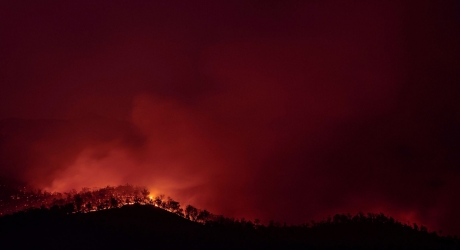Whenever we analyse suffering, we fond that there are two main features to it. One is the thing which causes the suffering and the other is our own reaction to it. We should take courage from Thelma Thomson's example, and so control our reaction that suffering is finally eliminated.
The Majave desert in California is a place of dust, fierce winds and unbearable heat. The Mexican Indians who inhabit this area lead a life apart and speak no English. Into this situation came Thelma Thompson, a young American soldier's wife. She had decided to start living in a village at the edge of the desert to be near her husband who was stationed during World War II at an army training camp in the vicinity. Within a very short time she began to feel that the environment was too hostile, particularly because of the climate and the impossibility of making contact with the local people, thanks to the language barrier. And it did not help to have her husband away most of the time on manoevres. Finally, she wrote to tell her parents that she would be coming back home. The reply she received from her father considered of just two lines:
Two men looked out from prison bars,
One saw mud, the other saw stars.
She read the couplet over and over again, then, feeling ashamed of her decision to leave, she made up her mind to see "the stars" in her situation, rather than the "mud." It was a decision which was to alter her entire life.
Making friends with the natives, she learned their languages and culture, and began to see desert life in a new light. She watched the magnificent desert sunsets, and studied the Cactus, the Yuccas and the Joshua trees in all their fascinating variety. She even hunted for seashells that had been left there millions of years ago when the sands of the desert had been an ocean floor.
Gradually the region began to exercise such a fascination over her mind that both she and her husband decided to stay on after he had retired from military service. She later wrote a novel, "Bright Ramparts" which expressed all the excitement she had felt over her new experiences and discoveries. Her book proved very popular and ran to several editions.
A wretched experience had been transformed into an exciting adventure. But how exactly had this transformation taken place? Neither the desert, nor the natives, nor any other element in the situation had changed. Whatever change had taken place was inside the mind heart of Thelma Thompson. Her own change of attitude had given her a new life.








